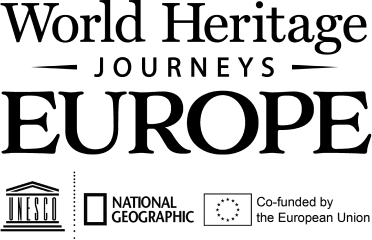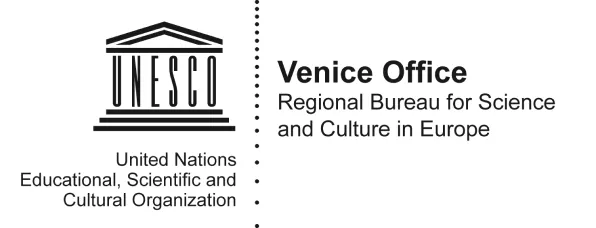La gestion du site confiée à un EPCC
The Pont du Gard site, with its historic monuments, 165 hectares of listed natural areas and numerous discovery areas, has been managed since 2003 by a Public Establishment for Cultural Cooperation (Etablissement Public de Coopération Culturelle) of an industrial and commercial nature. One of the first in France.
Its role is to manage the site, preserve and enhance its unique historical and ecological heritage, welcome the many visitors with a high level of quality, animate the site, disseminate knowledge about it and develop and promote its cultural, tourist and environmental activities at national and international level.
The Pont du Gard site around the World Heritage monument is a heritage, natural and cultural site covering an area of 165 hectares, which has now become a world tourist mecca, visited by almost 1,000,000 French and foreign visitors every year
The Pont du Gard is an ode to travel, a complex trace of the passage of time and man's relationship with his environment, a striking testimony to humanity inventing civilisations and tracing its history.
Its inclusion on UNESCO's World Heritage List in 1985 as a testament to human creative genius gives the Pont du Gard an exceptional universal value that transcends national borders. The Pont du Gard must be used to think about the world of tomorrow, responding in a sustainable way to the challenges of today and enabling the transmission of knowledge and experience to serve humanity. The primary role of the Pont du Gard EPCC is to ensure that this priceless treasure is protected, through a regional, national and international dynamic that promotes UNESCO's values of openness, sharing, peace, education and culture.One of France's first EPCCs

The Pont du Gard EPCC was one of the first to be created in France. It is also one of the largest in terms of the size of its board of directors. It gives the Pont du Gard site the same economic and social status as the Louvre (Établissement public du Grand Louvre) and Versailles (Établissement public du musée et du domaine national de Versailles).
Its Board of Directors is made up of 25 members, including representatives of the Conseil général du Gard, the Conseil Régional du Languedoc-Roussillon, the French government and the mayors of the towns in which the site is located (Castillon du Gard, Remoulins and Vers Pont du Gard). Qualified personalities and staff representatives are also involved.
Le Pont du Gard (Yann de Fareins)
Ensuring the preservation of a UNESCO site is a complex task that requires collective resources and efforts. This is why the EPCC is involved in national and international partnerships to raise awareness, improve efficiency, gain expertise, raise funds, increase scientific knowledge and implement activities through innovative and creative partnerships. Our partners include a wide range of key stakeholders: the French government, the Occitanie region, the Gard département, Europe, local authorities, associations, etc. These alliances reflect a strong commitment by all to the long-term management of a World Heritage site.
The scope of the EPCC's activities has been extended since 2022, with the possibility of developing or participating in initiatives directly related to its areas of activity, such as culture, the environment, tourism and science, or related to the Nîmes aqueduct in an area that can extend from Uzès to Nîmes, for example by providing material or financial support for operations.


"The world needs education, science and culture to provide sustainable responses to today's challenges, to build peace, combat climate change, eradicate poverty and design the world of tomorrow. This Public Institution will therefore be our tool for the duration of this mandate. It will be our laboratory. One of those laboratories where we take the time, the time for reflection, which is often lacking in today's world, where there is little room for argument, confrontation of ideas and nuance. But it is also a laboratory where reflection precedes the action so eagerly awaited by future generations. As a sign of the times and the cement of our action, culture and heritage, in their many forms, occupy an important place in the life of human communities and in the process of building individuals. I'm thinking of those times when young women and men need places to meet, to share and to experience in order to forge their character, develop their thinking skills and sometimes even sublimate their ideals."
Extract from a speech to the Board of Directors on 17 December 2021
The management plan for the World Heritage site, drawn up by the Pont du Gard EPCC in close collaboration with the State and local stakeholders, is the foundation of a shared ambition and a strong commitment to protecting and managing this unique treasure. This plan will guide the actions of the Pont du Gard EPCC over the next ten years. It brings together the knowledge and expertise relating to the monument and the site and the actions that have contributed to the preservation of the Pont du Gard's outstanding universal value. It provides a framework for long-term decision-making and anchors the monument in its territory. It is part of a local, national and international dynamic and enables us to honour UNESCO's values of openness, sharing and transmission in order to think about the world of tomorrow, to understand and respect each other and to respond in a sustainable way to the challenges we face today.
The update of the site's development plan (study carried out in 2018) highlighted the need to renovate the interpretation areas, which date back more than 20 years, and to accompany the project with an overall review of flow management. As a result, in 2021, the EPCC has launched a major development project for the natural and cultural site, which should result in the overhaul of the discovery and reception areas on the left bank by 2026.
The content of this project will form part of the continuity of the visitor experience that has been sought since the site was created: an experience that is accessible to a wide audience, taking into account the sociology of visitors and in keeping with the various interpretation areas and the visitor trail.
In addition, since 2022, the way in which visitors are welcomed has changed, allowing free access to the monument and the site, enabling visitors and local residents to enjoy this exceptional place in a simple way, in the original spirit of the site.
Our Index is 89/100
Results of the gender equality index indicators
1- pay gap: 39/40 points
2- gap in individual pay rises: 25/35 points
3- percentage of employees receiving a pay rise on return from maternity leave: 15/15
4- number of employees of the under-represented sex in the 10 highest paid: 10/10
Total calculable indicators: 89/100